
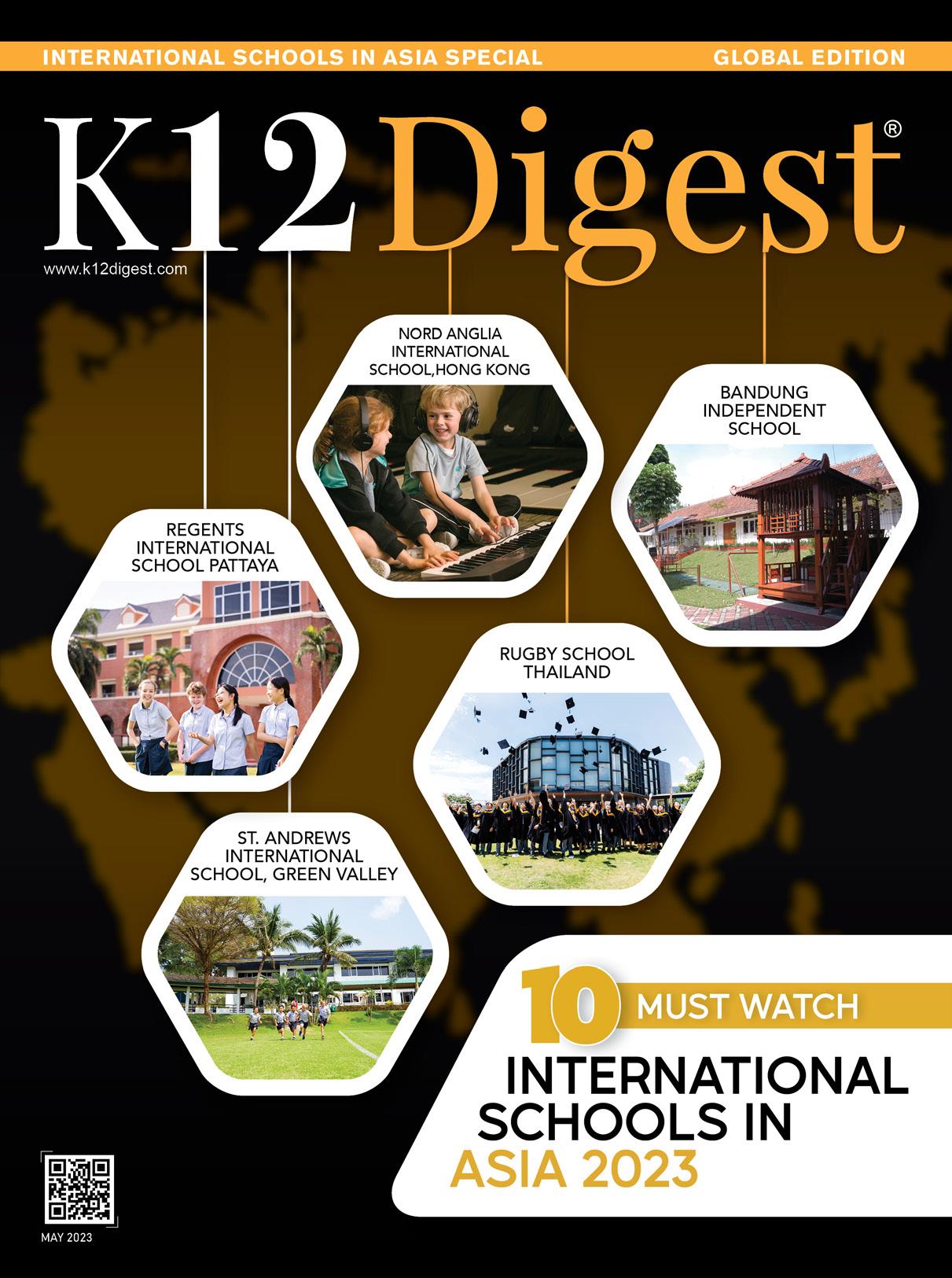


Must-Watch International Schools in Asia-2023
Managing Editor
Free May 2023 Vol - 4 Issue - 6
Sarath Shyam
Consultant Editors
Dr. John Andrews
Emma James
Naomi Wilson
Stanly Lui
Joseph Alex
Art & Design
Charlie Jameson
Jennifer Anderson
Alice Smith
Monica Davis
Anna Elza
Sales & Marketing Enquiry admin@K12digest.com


International Representation
Americas
16192 Coastal Highway, Lewes, DE 19958, USA
Europe
27, Old Gloucester Street, London, WC1N 3AX, UK
Middle East & Africa
P.O. Box 48299, Dubai Silicon Oasis, Dubai, UAE
Asia-Pacific
Ramanashree Arcade, 18 MG Road, Bangalore – 560001, India
MAY 2023
K12 Digest is a digital magazine published by Connecta Innovation Private Limited. All rights reserved. The opinions expressed in the content and pictures provided are those of the authors. They do not purport to reflect the opinions or views of the Connecta Innovation Private Limited or any of its members and we do not assume any responsibility. The publisher does not assume any responsibility for the advertisements, its content, pictures, and all representation of warranties made in such advertisements are those of the advertisers and not of the publisher. K12 Digest is a Free Subscription digital magazine strictly not for sale and has to be strictly for internal private use only. Publisher does not assume any responsibility arising out of anyone printing copy of this digital magazine in any format and in any country and all matters related to that.


K12 Digest May 2023 4
Andrew Scott Subscription
Beyond Borders: The Benefits of Attending an International School in Asia
International schools in Asia have become increasingly popular in recent years as the region continues to experience economic growth and globalization. These schools cater to expatriate families, as well as local families who are looking for a globally-focused education for their children. According to a report by ISC Research, there were over 1,500 international schools in Asia as of 2020, serving approximately 670,000 students.
The growth of international schools in Asia has been driven by several factors, including the demand for English-language education, the desire for a more international curriculum, and the belief that an international education can provide better opportunities for students. Many of these schools offer the International Baccalaureate (IB) curriculum, which is recognized worldwide and prepares students for higher education globally. Additionally, international schools in Asia often have state-of-the-art facilities and attract highly qualified teachers from around the world, making them a top choice for families seeking a high-quality education.
In this issue, we have identified 10 Must-Watch International Schools in Asia - 2023 that are offering world-class curricula, facilities, and resources under the tutelage of highly qualified and experienced teachers. We hope that efforts will help families to make an informed decision about the best international school for their child. Enjoy Reading.
Sarath Shyam

K12 Digest May 2023 5
MANAGING EDITOR’S NOTE
Former International School Principal, Former Group Project Director at a World Class Learning Group, Education Consultant - Wright Solutions, United Kingdom

INTERNATIONAL ADVISORY BOARD
Founder & CEO - Paths to Math Ltd, Former Mathematics Teacher and Principal, Global Teacher Prize Finalist, Finland




Principal, Rundle College, South Africa
Asst. Prof. Dr. Poonsri Vate-U-Lan

Chief Education Officer, New Nordic School, Finland
Exceptional Educator from Serbia, Founder of Association of the Best Teachers of the Former Yugoslavia, Founder of Magical Intercultural Friendship Network, Founder of Creative Magic - Children’s International Festival, Founder of Magic Village, Serbia
Assistant Professor in Education, Ph.D. Supervisor and Researcher, Thailand
Senior Educationist, Author, Keynote Speaker, Co-founderTríade Educacional, Brazil
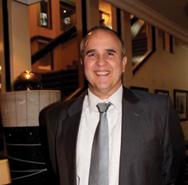
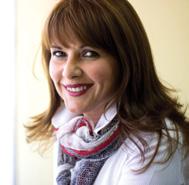
Palmans
Former Director School Administration & Business Operations (Large Education Group), Chief Operating Officer - BBD Education, Netherlands & UAE
Chief of Digital Learning and Development, Norwalk Public Schools, Connecticut, United States
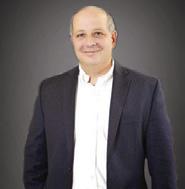
Senior Teacher‘Pashko Vasa’ school Shkodra, Exceptional Volunteer, Albania
English and Literature teacher, Owner of “The Smart Teens Studio of English” in Belgorod, Russia

Former Program Director, MS in Management Program, GSATM - AU, Thailand & India

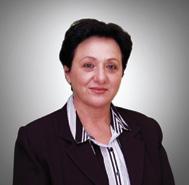
Founder & National President - ATAST, General director of IFEST² the international projects competition in Tunisia, General secretary of MILSET Africa, BRISECC member, Tunisia

K12 Digest May 2023 6
Stephen Cox
Chris Wright
Dr. Lilian Bacich
Zeljana Radojicic Lukic
Dr. Stuart Grant Colesky
Liljana Luani
Ralph Valenzisi
Maarit Rossi
Elena Shramkova
Hatem Slimane
Servatius (Servee)
Dr. Varughese K.John, PhD
Global Teacher Prize Finalist 2019, 15 International Awards on STEM, STEM Instructor, Educator, Neuroscience Researcher, Trainer & Author, Greece
Dr. Venus M. Alboruto Kihyun Park
Master Teacher, Researcher, Innovator, Trainer, Philippines
Deputy Head and Dean of Faculty, Dalton Academy, Beijing, China
Shady Elkassas
Director of Innovation

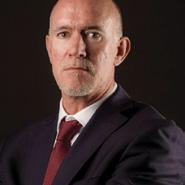
Al Ittihad National Private School-Al Ain, United Arab Emirates
Former Vice President Security (Large Education Group), Former British Army Officer (Airborne Forces), Senior Advisor – Resilience and Crisis Management (Emerald Solutions Group), United Kingdom & UAE
Innovative English and ICT Teacher, Author, Japan

Innovative Educator of Online Classroom, Pungsaeng Middle School, South Korea

Master Teacher, Speaker and Researcher, Philippines

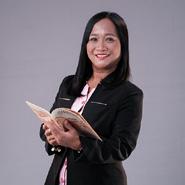
Revolutionary English Educator, Globally Connected English Studio - Hanoi, Vietnam
EdTech Specialist, Speaker and Teacher Trainer, Innovative ICT Educator, ICT learning multimedia developer, Indonesia
Distinguished Senior EFL Teacher, ISA Coordinator with the British Council, Motivational Speaker, Tunisia


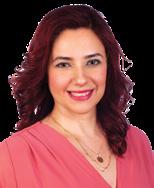
Juan Manuel Pico Co-founder & Managing Partner, Education Soul, Colombia
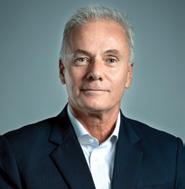
Mr. Ngô Thành Nam
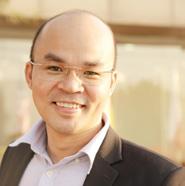
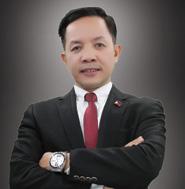
Technology Academy Manager, Microsoft Learning Consultant, Global Trainer, Vietnam
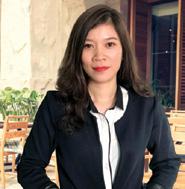
Dr. Manoj Varghese, Ph.D
Senior Director - Global Partnerships, Advisory & Consulting - Connecta®, Adjunct Faculty - Assumption University, Former Global Director Technology & Risk Management - GEMS Education, Former CIO - Athena Education.

Digest May 2023 7
Rania Lampou
Dr. Leonilo Basas Capulso
Angus Duthie
Herwin Hamid
Ian Deakin
Ha Nga
Hidekazu Shoto
Fethy Letaief
MUST WATCH INTERNATIONAL SCHOOLS IN ASIA 2023

BANDUNG INDEPENDENT SCHOOL
Cultivating the Next Generation of Internationally Minded Leaders
NORD ANGLIA INTERNATIONAL SCHOOL, HONG KONG




Offering A Personalised Transformational Learning Experience
MENTOR’S OPINION
YOU SAID, WE DID! -THE IMPACT OF STUDENT VOICE ON SCHOOL DEVELOPMENT

John J. Taylor, Vice Principal (Boarding), MPW London

K12 Digest May 2023 8 CONTENTS CONTENTS
22 36 22
12 36










K12 Digest May 2023 9 506282 62 Preparing Today’s Students for Tomorrow’s World REGENTS INTERNATIONAL SCHOOL PATTAYA 82 A Bespoke
Preparing
Ever-Changing World ST. ANDREWS INTERNATIONAL SCHOOL,
VALLEY 50 Creating a Dynamic & Interactive Learning Environment RUGBY SCHOOL THAILAND INDUSTRY PERSPECTIVE
Education,
Children to Take Their Place in an
GREEN
GAMEPLAY FOR THE FUTURE OF EDUCATION
32
Alina Colton, Co-founder & CEO, Arcadia Math, Tel Aviv
INDUSTRY PERSPECTIVE
THE INCONVENIENCE OF CHATGPT’S AGE RESTRICTION
Tony DePrato, Chief Information Officer, St. Andrew’s Episcopal School

ACADEMIC VIEWS
THE IMPORTANCE OF MINDFULNESS AND CORE VALUES IN SCHOOLS
Claudiane Moraes, School Principal, Key Point Christian Academy

CONCEPT-BASED CURRICULUM: BEYOND “TRANSFERABLE GENERALIZATIONS”
Jérémie Rostan, PreK-12 ServiceLearning Coach, Yokohama International School

K12 Digest May 2023 10 CONTENTS CONTENTS
74
92
46



Amazing Opportunity for Teachers and School Leaders to enhance their knowledge through FREE Teachers Academy masterclasses from international education experts !!! For more details and registration www.teachersacademy.com
You Said, We Did! -The Impact of Student Voice on School Development
John J. Taylor, Vice Principal (Boarding), MPW London
Teenagers often need to be convinced that adults are actually listening to them. When I think back to my own adolescent days, the number of teachers who instructed me with phrases such as ‘do as you’re told’, ‘stop asking so many questions’ (which I did!), and ‘stop talking when I’m talking’ probably made me even more likely to want my voice to be heard. Not everyone is like me, however,
and the quieter students in my classes were probably never heard at all.
In international schools, we have students from many cultures. In many educational environments around the world, students are actively discouraged from asking too many questions in lessons, and in boarding schools in the UK we spend time encouraging students to come to tell us if there is a problem pastorally, but also in terms of any concerns with our provision.
K12 Digest May 2023 12
MENTOR’S OPINION
The process of using student voice effectively is really, then, a pastoral endeavor – if we want to show we care and we understand young people, we should then be able to put things in place to help them by improving things
John J. Taylor has worked in international boarding schools for almost 20 years, serving as a Housemaster, Vice Principal, and Principal, including working in the Middle East. John is a deputy safeguarding lead, Director of Studies, and Vice Principal at MPW London, where he led the opening of boarding from scratch in January 2023 in the newly refurbished building opposite Kensington’s iconic Natural History Museum. John is a Fellow of the Royal Society of the Arts and of the BSA’s new Institute of Boarding.

K12 Digest May 2023 13
School leadership is about compromise, listening, picking your battles, and identifying what I often refer to as ‘The Three Ps’ – the positives, problems, and priorities for development through ‘The Three Cs’ – clarity, consistency, and – the most important ‘C’ - collaboration

K12 Digest May 2023 14
I consider pastoral care a three-stage process:
● Care (Do we care about our young people? How do we show it?)
● Understand (How do we try to understand where they are coming from and demonstrate we’re trying to support them?)
● Help (What provisions for support are in place?)
The process of using student voice effectively is really, then, a pastoral endeavor – if we want to show we care and we understand young people, we should then be able to put things in place to help them by improving things.
UK inspection regimes now emphasize pupil voice, as evidenced in National Minimum Standards for Boarding Schools in England and Wales. As we go about creating development plans for schools, the way in which we gather students’ voices, and how we feed them back to our young people, is increasingly important. If we are truly school leaders who place pupils at the heart of all we do, and if we see ourselves as servant leaders, we should want to actively listen to our young people’s views, considering them as we continue to develop our provisions in international schools.
This isn’t to say we can grant every request, of course. When I was a Housemaster in an IB School in Scotland, a young man was arguing for a sugary vending machine in our boarding house common room so he could have an icecold Coke at two in the morning when he was studying. I remember explaining why this would not be conducive to good sleep or study patterns. In the words of the Rolling Stones, ‘You can’t always get what you want’, but you can feel listened to and considered. School leadership
is about compromise, listening, picking your battles, and identifying what I often refer to as ‘The Three Ps’ – the positives, problems, and priorities for development through ‘The Three Cs’ – clarity, consistency, and – the most important ‘C’ - collaboration.
So, how do we properly gather students’ views on our educational offerings, our pastoral provision, and the things that matter to them?
Firstly, consider the methods of gathering information; we want students to feel able to come and talk openly with staff – so having staff who are approachable, open, willing to listen, and who actually have the time to do so is allimportant. But for those who don’t feel able to be quite so transparent, anonymous views are also crucial so that anyone can express their thoughts and feelings without fear of comeback. Whistleblowing takes courage, so the culture has to be right in the first place.
Combining methods for student feedback is important; the days of a simple ‘suggestions box’ are long gone; all one finds in them are old chocolate wrappers and occasional bits of paper! While I have replaced suggestion boxes with comments books (making sure there is a pen secured with a chain nearby!), this also isn’t enough. We also use ‘Whisper’ - an anonymous online system mostly for safeguarding where issues can be reported anonymously. This kind of feedback is rare, however, so we must go further.
Our Boarders’ Committee is an essential way of gathering student views; this is designed to represent different groups (age, nationality, gender, floor, etc), and we train students in offering representative feedback. Rather than saying what they and their friends think, it is important for Boarders’ Committee members
K12 Digest May 2023 15
to visit others, including those they don’t know, gathering their views before meetings.
Surveys are also useful; asking the right questions, whether it is a survey on trips and activities, or whether it is a more general inspection-style survey, getting the tone right, and being able to analyse the responses are key to getting to the core of what the general views of the school community really are. The difficulty with surveys is getting enough responses: if you
this is having ‘random clickers’ who just want it done as quickly as possible, which can of course skew results. Either way, analysing results and considering how to improve provision as a direct result of students’ voices is really important. Schools exist for the young people we serve, and if we aren’t meeting what they need then we must continually consider how to improve, even if it does create an ever-increasing to-do list that will never be fully ticked!
I think the biggest trick is to be able to share with students the outcome of any feedback they may offer. I do this in a simple ‘You Said / We Did’ format, where we show the methods, we have used to listen to student views, and we briefly outline what action has been taken in response to these views. Was the issue discussed in a pastoral meeting, was something new put in place, and was a suggested event or trip organised? Sending this out termly to the student body and posting it on noticeboards goes some way towards convincing skeptical teenagers that we actually do listen, we actually do action some of their ideas, and we do care and at least try to understand them.
send them out, consider what communication methods will reach your students most effectively. Where do they check these days?
Unlike school staff, it isn’t on email anymore! Sitting students in a room with a phone and having them complete the survey before they leave will get more responses; though the risk of
Finally, how do we actively build some of these pieces of feedback into our short-, mediumand long-term School Improvement Plans? In my experience, improvement planning is often completed for the benefit of the school and its community – for the pupils and for the staff who teach and care for them. Feeding student views directly into self-evaluation forms and development plans can change the trajectory of a school or college for the better, as well as help otherwise quiet students to find their voice, make their views known, and ultimately feel more confident in themselves. That can only ever be a good thing!
K12 Digest May 2023 16
Schools exist for the young people we serve, and if we aren’t meeting what they need then we must continually consider how to improve, even if it does create an everincreasing to-do list that will never be fully ticked!

American School in Japan
Location: Tokyo, Japan
MUST WATCH
INTERNATIONAL SCHOOLS IN ASIA 2023
Bandung Independent School

Location: Bandung, Indonesia
Website:
Keyperson: Jim Hardin, Head of School
Admission:
Website:
Keyperson: Dr. Michael Berry, Head of School
Admission:
https://www.asij.ac.jp/ https://www.bisedu.or.id/ https://www.asij.ac.jp/admissions/ admissions-home
https://www.bisedu.or.id/admission/ application-process

K12 Digest May 2023 18
International School of Kuala Lumpur

Location: Kuala Lumpur, Malaysia
Website:
https://www.iskl.edu.my/
Keyperson: Rami Madani, Head of School
Admission:
https://www.bisedu.or.id/admission/ application-process
Nord Anglia International School, Hong Kong

Location: Kowloon, Hong Kong
Website:
https://www.nordangliaeducation. com/our-schools/hong-kong/
Keyperson: Kenny Duncan, Principal
Admission:
https://www.nordangliaeducation.com/ our-schools/hong-kong/how-to-apply
Regents International School Pattaya Rugby School Thailand

Location: Pattaya, Thailand
Location: Pong, Thailand
Website:
https://www.nordangliaeducation. com/risp-pattaya
Keyperson: Sarah Osborne-James, Principal
Admission:
https://www.nordangliaeducation.com/risppattaya/admissions
Website:
https://www.rugbyschool.ac.th/
Keyperson: Bruce Grindlay, Principal
Admission:
https://www.rugbyschool.ac.th/admissions/ make-an-enquiry/

K12 Digest May 2023 19
Shanghai American School

Location: Shanghai, China
Website:
https://www.saschina.org/
Keyperson: James Nelligan, Head of School
Admission:
https://www.saschina.org/admissions/apply

Singapore American School

Location: Singapore
Website:
https://www.sas.edu.sg/
Keyperson: Tom Boasberg, Superintendent
Admission:
https://www.sas.edu.sg/admissions
St. Andrews International School, Green Valley
Location: Rayong, Thailand
Website:
Taipei American School
Location: New Taipei, Taiwan
https://www.tas.edu.tw/ https://www.standrewsgreenvalley.com/

Keyperson: Charles Grayhurst, Head of School
Admission:
Website:
Keyperson: Josh Budde, Principal
Admission:
https://www.tas.edu.tw/admissions https://www.standrewsgreenvalley. com/request-information/
K12 Digest May 2023 20
Chat










fellow participants The raise hand feature ensures every student has a voice
and beyond
Share files and applications Poll students
with
Continue Learning with A Secure Virtual Classroom for K-12
Interact
breakout groups
JOIN SESSION Easy login, no downloading or installation Share and record video and audio Create personalized profiles
with
Use in the classroom

22
BANDUNG INDEPENDENT SCHOOL
Cultivating the Next Generation of Internationally Minded Leaders

Incepted in 1972, Bandung Independent School (BIS) is an internationally minded school of excellence, nurturing individuals and community potential. Holding 51 years of rich history, the school is home to 24 expatriate teachers and 20 different student nationalities. BIS is the only IB Continuum school in Bandung, providing a holistic education that is positive for student achievement inside and outside the classroom. The school is accredited by the Council of International Schools (CIS), the New England Association of Schools and Colleges (NEASC), and authorized by the International Baccalaureate Organization (IBO) in Geneva, Switzerland.
BIS mission statement reads, “Through engaging IB programs, we empower inquiring, reflective, and caring lifelong learners
K12 Digest May 2023 23
MUST WATCH INTERNATIONAL SCHOOLS IN
2023
ASIA
DR. MICHAEL BERRY, HEAD OF SCHOOL

Dr. Michael Berry was born and raised in the United States, where he earned his bachelor’s degree as an elementary teacher, master’s degree as a Reading Specialist, and doctorate degree in Instructional Leadership from Wilkes University. He has been involved in international education for 27 years working in Mexico, Costa Rica, Oman, Singapore, and now Indonesia. Most of Dr. Berry’s experience has been with IB Continuum Schools, where he has served as a classroom Teacher, Curriculum Coordinator, Principal, and Head of School.
Dr. Berry has continued his relationship with Wilkes by serving as an adjunct professor. He teaches a course entitled Intercultural Communication at the master’s level and two courses at the doctorate level; Leadership, Diversity, and Social Change, as well as Organizational and Leadership Theory.
K12 Digest May 2023 24
ABOUT
to continue striving towards a better world.”
From a young age, BIS students inculcate the values (courage, open-mindedness, balance, integrity, and community) and realize they have a responsibility to their community and their world as they demonstrate their international mindedness.
Modern Infrastructural Facilities
As an IB School, BIS provides an excellent infrastructure to facilitate the education process and enhance students’ academic, social, emotional, and spiritual learning. The school comprises a

performing arts center with theatre and practice rooms, two covered courts, a full-size soccer field, two science labs, a swimming pool, a library, collaborative workspaces, a computer lab, and an innovator’s maker space/design lab.
Over the summer of 2022, the BIS Board supported a complete replacement of the primary playground, extended the canteen area to sustain expected growth in student enrolment, added a Culinary Arts Center (bakerspace) where students can incorporate cooking in all subjects across each section of the school, and constructed a garden to support hands-on,
K12 Digest May 2023 25
BIS is in its 51st year serving expatriate and local families in Bandung and educates nearly 200 students on a 1.2-hectare campus just north of the city center
authentic learning that is closely aligned with the curriculum. Moreover, the school has replaced many wood-built gazebos identified as potential safety hazards due to earthquakes. BIS has also invested heavily in securing a state-of-the-art safety alarm system that can alert stakeholders of earthquakes, fires, and intruders on campus.

What Sets BIS a Notch Above its Peers?
BIS is the only school in Bandung to offer all three prestigious International Baccalaureate programs, the PYP in the Primary, the MYP in

K12 Digest May 2023 26
the Middle School, and the Diploma program in grades 11 and 12. Each of these programs values the development of 21st-century skills and strives to develop them through authentic learning. Additionally, the IB program provides a curriculum that inherently supports the understanding of creating within each student an open-minded view of intercultural communication and acceptance of others no matter their origin.

Another essential facet that IB Programme promotes is the significance of service and action, which begins with students as young as three years old and continues throughout their time at BIS. Students and teachers work to support all groups both globally and locally. Often, these initiatives are connected to the curriculum on offer; however, there are instances where new initiatives come about organically, such as the recent earthquake that severely impacted the Cianjur region near Bandung.
“BIS’ 51 years of experience in Bandung, our diversity and commitment to the IB, and the international curriculum certainly sets us apart
from other schools in the city,” reveals shares Dr. Michael Berry, Head of School, BIS.
Small Class Sizes Increased Active Learning
Admitting a limited number of students, which is around 200 now, the student-to-teacher ratio at the BIS is approximately 9:1. In every primary classroom, there is a lead classroom teacher and a certified assistant teacher. Although the secondary school enrolment is larger, the class size is still considered small. These small class sizes allow the teachers to identify each student’s specific needs, whether academic, social, or emotional. They can then utilize the referral process to gain support from BIS’ Student Support Team (SST), consisting of the Head of School, the section Principal, the Multi-Language Learner (MLL) teacher, the Learning Support teacher, and the well-being coordinator. This team meets weekly to discuss referred students ensuring each child accesses the “just right” support required. Moreover, teachers are also involved in this process as many strategies
K12 Digest May 2023 27
are shared with them to accentuate their teaching toolkit in the classroom.
Numerous Professional Development Opportunities for Teachers
Following the Indonesian regulations, all BIS teachers are seasoned veterans matched with the age of the students they teach and the subject area. Once a teacher is hired, BIS further supports their skill and pedagogical development through professional development (PD) opportunities. The aim of the PD that each teacher undertakes is to enhance their teaching skills. The fact that BIS is a small school with a limited number of experienced teachers aids the administration in helping further improve the
skills of the teachers who are in front of the students every day.
Parents are an Integral Part of the BIS Community
The parent community is and has always been a huge asset at BIS. Firstly, as a school, it is recognized that the triangular relationship between teacher, parent, and student is crucial to enhance student achievement. The communication between each stakeholder is strong, enabling conversations regarding teaching and learning and social and emotional well-being to occur regularly. This consistent communication between family and school allows teachers to differentiate instruction while providing strategies and tips to parents

K12 Digest May 2023 28
to help amplify learning, allowing students to reach their potential.
Parents are integral in the “sense of community” felt once one walks on the campus. The same feeling is reciprocated by the parents who value being a part of a larger community within the school. Furthermore, in every accreditation report received after a school visit, BIS has been consistently commended for its effort to create and nurture relationships across the school, especially with the parent community.
A High College Acceptance Rate
100% of students are accepted and attend college after graduating from BIS. In fact, most students obtain acceptance to their first-choice universities, many of which are considered
and listed as “Top 100 Universities” worldwide. These results are facilitated by BIS’ University Counsellor and Assistant Counsellor. Each spends a great number of hours meeting with individual students accompanied by their parents, beginning in Grade 11, to determine the best path forward.

Celebrating Students’ Success
The IB Diploma results of BIS students for the 2021 - 2022 school year were within the top 5% in the world. This academic year saw the highest individual achievement in the history of BIS, with a student scoring 44 out of 45. Last year, BIS students participated in the World Math Invitational contest and won Silver (Grade 7), Bronze (Grade 8), Gold and Bronze (Grade 9), and Silver (Grade 11).
K12 Digest May 2023 29
BIS offers more than 32 extra-curricular activities to fit the interests and passions of its students of all ages. The activities fall include sports, service clubs, leadership opportunities, the arts, and technology
Taking Lessons from the COVID-19 Pandemic
Like many schools across the globe, BIS has also encountered numerous sets of challenges. Many parents left the school due to their own financial struggles with COVID and the demand placed on them to facilitate the teaching and learning process while the school was forced to conduct classes online. Despite these challenges, BIS’ board remained focused on student learning and continued to invest significantly in resources and campus facilities. The outcome was a strong virtual platform. In fact, the 2021 – 2022 graduating class passed with the highest-ever Diploma Programme score in the school’s history.

The pandemic truly brought to light how virtual learning can be used as a powerful tool for students in their future, whether in university, after college, or moving toward another area
of expertise. Keeping this pandemic takeaway in mind, BIS plans to enhance the skills of its students by integrating them authentically into the daily lessons to make learners future-ready.
Roadmap for the Future
In October 2022, the Board, Head of School, and Principals of BIS formulated a new 3-year strategic plan focusing on 3 main pillars: Teaching and Learning, Fiduciary, and the Community. Each of these pillars contains goals, targets, key performance indicators, a list of people responsible for completing the plans, and a timeline for success.
Going ahead, BIS intends to work diligently to meet these goals and fulfill its vision of nurturing individual student potential and championing internationally-minded leaders as the school of choice for West Java.
K12 Digest May 2023 30

Gameplay for the Future of Education
Alina Colton, Co-founder & CEO, Arcadia Math, Tel Aviv
We are almost a quarter of a century into the third millennium and the long debate about the role of the new educator seems to be getting more complicated. To throw another spanner in the works, generative AI reshuffled all the cards. How do we grade papers that might be a result of 20 seconds of work? What are we even grading? What skills will be required of these kids and how do we figure these answers out if we have no clue what world we are preparing them for?
Despite the uncertainties, some answers remain clear. First -The unknown will require the ability to cope with rapid changes. And second -these kids will have to keep on learning a long time after we’re not around. Therefore, the greatest asset we can give them is the confidence and capabilities to pursue their dreams.
K12 Digest May 2023 32
INDUSTRY PERSPECTIVE
Alina Colton is the Co-founder and CEO of Arcadia Math, a startup devoted to unleashing children’s mathematical capabilities through gaming. She is an award-winning educator with 25 years of experience in promoting STEM Education, developing innovative tools to make math, physics, and engineering accessible to youth, and enabling teachers to inspire and excite their students. She was previously the Pedagogical Director of SpaceIL, who reached the moon with the first privately funded spacecraft.

K12 Digest May 2023 33
How does this translate into practical tools our students will need?
I bear no news when I list: Creativity, confidence, curiosity the willingness to embrace mistakes and learn from them, the ability to work as a part of a team, foresight and accountability.
Give or take a few elements, there is a wide consensus regarding these elements. So why is the challenge still great? The reason is the gap between what we’ve known for years would be our job and the circumstances that make it difficult to do it. Reality brews many pitfalls that stand between what we truly believe to what we feel we can do about it.
Let’s examine two of these challenges:
We all realize the importance of creativity and aim to nurture it. But putting it to practice is challenging. When we teach in a classroom, children need to be aligned. Aligned to the same pace the same interests the same learning path.
The conflict this pauses with our desire to promote creativity is obvious but the challenge goes even deeper than that.
Creativity is celebrated once it is a proven success. Yet, the early stages of creativity by default meet opposition. Why? Because creativity presents changes, and human beings are wired to resist change. Nurturing creativity requires two skills. The first is the ability to learn from criticism without being deterred by it. This is tricky! It means we shouldn’t avoid criticism. We must expose children to it. But avoid crushing their confidence. Exposing children to criticism in a manner that empowers them is an art. I humbly promise to offer one option to deal with this challenge as this article unfolds.
The challenge doesn’t stop with creativity. Another obvious example is grooming a healthy approach towards mistakes. On one hand we wish to teach children to embrace and even celebrate mistakes. In practice each mistake is fined with points that are taken off the score. It is registered remembered and even highlighted as if it is the most important part of every feedback.
So what can be done to counter these challenges.
There are many tools for bridging this gap. I will focus on the role of game-based learning in this task.
The advantage of games is often thanks to the high engagement they offer. For this to be true, pick games kids genuinely love.
When kids are engaged with games, we are relieved of that need to align them. They are encouraged to be creative, and progress at their own pace. General creativity is always great. Yet, examine the context of the creativity required. Many games are unrelated to the topic kids are learning. They play – and to continue
K12 Digest May 2023 34
Creativity is celebrated once it is a proven success. Yet, the early stages of creativity by default meet opposition
they are required to answer some traditional questions about the subject. This has little contribution to their approach to the subject. But the game can be about the subject itself. For instance, when the classroom is a shop of cards of puppies, cars rockets and whatever else comes to mind. And the kids have different notes of “game money” I’ve seen teachers inviting kids to figure out alliance with other kids to get what they wanted. There was mind blowing mathematical creativity along practice of persuasion negotiation and more.
Earlier I promised to offer one tool for dealing with the challenge to gradually building children’s ability to handle criticism. This is where games can play a major role. Kids are used to be criticised by their peers during playtime. An analysis of our conduct during a game is often a valuable starting point. We can set rules for the person who is criticising:
Always look in the eyes of the person you wish to criticise.
Avoid hurtful words.
Describe what happened and what you felt.
Describe what better alternative you saw to your opinion.
Use words like to my opinion instead of “Nonsense” or “You’re wrong!”.
Practice these rules consistently as kids voice their opinions in the classroom. Offer opportunities for kids to express their feelings and reflect on what had happened. Teachers are artists. Their instincts are carefully tuned tools. Once used with love they are the most valuable thing the educational system has.
Regarding mistakes there is an opportunity to dive even deeper into the world of games. Often gamified tools offer an encouraging
statement like: “That’s ok, try again!” It is the nicest way to do the same thing we do when we take off points at a test. How do the giants of gaming get kids to persevere and master skills without giving up even when they start off with games they do very poorly at?
A. They give unlimited second chances.
B. The final score registers success not mistakes!
C. Mistakes are often met with humour! Choose games with a similar approach. Allow as many chances as possible whenever you can. Share your own mistakes, laugh about them and use humour instead of judgment to embrace mistakes.
Earlier I’ve mentioned that building the confidence to face criticism is a form of an art. Allow me to take it further, Teaching is an art and teachers are artists. I solute what educators do and commit myself to offer as many tools as I can to allow them to focus purely on their job. We can’t address teaching without asking ourselves what is learning. And the issue of machine learning and generative AI sparks many thoughts and concerns regarding this issue. Allow me to share my own opinion of the subject:
Learning is about: observation, analysis, imagination and the generation of original thoughts and ideas. It goes beyond the requirement to repeat other people’s ideas or knowledge of their actions. We cannot groom those without promoting creativity and the courage to make mistakes. I am far from being able to predict the full scope of the way recent evolvements in technology will impact us. I have no doubt the impact will be immense yet, relationships authenticity and imagination will forever keep ‘teachers and educators at the heart of learning.
K12 Digest May 2023 35

K12 Digest May 2023 36
MUST WATCH
SCHOOLS IN ASIA
NORD ANGLIA INTERNATIONAL SCHOOL, HONG KONG

Offering A Personalised Transformational Learning Experience
NK12 Digest May 2023 37
INTERNATIONAL
o two children are the same, even if they are brought up in the same home and have the same biological parents. Similarly, no two children learn the same way, which is why Nord Anglia Education’s personalised learning works best for children around the world. With 82 schools in 33 countries and 70,000+ students worldwide, Nord Anglia Education is the world’s leading premium international school organisation. Founded in 2014, Nord Anglia International School Hong Kong (NAISHK) is part of Nord Anglia Education’s global family that spans continents and cultures. The school has dedicated Early Years and Primary campuses. In August 2021, it opened a brandnew Secondary Campus. All NAISHK campuses follow the curriculum frameworks of EYFS, IGCSE and IBDP. 2023
ABOUT MR KENNY DUNCAN, PRINCIPAL

Mr Kenny Duncan is an educator with more than three decades of experience, specialising in academic excellence, collaboration and community cohesion and was a highly experienced school leader and a Principal of two schools before joining Nord Anglia International School, Hong Kong. Mr Duncan completed his teacher training in Scotland, holding a Bachelor of Education from Edinburgh University. He also has a Masters Degree in Education from Bath University, specialising in educational leadership, partnership and development of educational networks, and completed his National Professional Qualification for Headship in 2011.
A pioneer in the teaching of technology, Mr Duncan led collaborations with leaders in industry and academia, including the University of Bristol, Rolls-Royce, and British Aerospace, to design an innovative STEAM programme for primary and secondary schools across the UK. These collaborations helped to develop essential teaching techniques to educate UK students for the future, ensuring they acquire the skills and mindsets to thrive in a changing world. Mr Duncan is a strong advocate for community involvement and parent collaboration. He considers this crucial in supporting young people as they continue their academic journey. He is an enthusiastic member and supporter of our vibrant PTA, enabling wider opportunities for parents to collaborate and participate in the life of the school.
K12 Digest May 2023 38
“We promise the parents that their child will succeed through our individualised approach in a safe, caring, happy environment. Our students will be encouraged to have self-respect and respect for others and to contribute as global citizens. They will be able to discover and nurture interests and talents,” assures Mr Kenny Duncan, Principal, NAISHK. Personalised learning is at the core of everything that happens at NAISHK. Mr Duncan adds, “In line with our values as a school, NAISHK offers a personalised approach to university and careers guidance.”
An Inspirational Team of Global Teachers
Nord Anglia Education’s global scale enables NAISHK to recruit and retain the best teachers in the world. “We have an amazing team of inspirational teachers, all of whom are committed to nurturing and inspiring every child and ensuring each of our students makes exceptional progress,” shares Mr Duncan. In fact, the school receives 40-50 applications for every position and recruits only the best teachers. Mr Duncan adds, “Nord Anglia University connects our teachers worldwide

K12 Digest May 2023 39
and offers training and support forums. We also have Bespoke leadership courses with our partners Kings College London for our teachers to get a Master Degree.”
NAISHK teachers have many opportunities for professional development, including inperson sessions with Juilliard curriculum specialists in their schools and through workshops designed and led by Juilliard experts both regionally and at The Juilliard School in New York. This ensures that the level of teaching at NAISHK remains at the highest standard, energising and encouraging students to develop and pursue a love for the performing arts.
“Our STEAM teachers participate in workshops at Massachusetts Institute of Technology (MIT)
that expose them to the forefront of STEAM research and thinking,” says Mr Duncan. Every summer, NAISHK teachers visit MIT to receive hands-on training from MIT researchers and renowned academics and participate in activities that include discussions and workshops with leading engineers and scientists about topics like climate change, bio-engineering and space exploration.
Working with Juilliard & MIT
Nord Anglia Education partners with prestigious organisations like MIT and the Juilliard School in New York. For instance, postgraduates and professors at MIT design around six projectbased challenges a year, which NAISHK

K12 Digest May 2023 40
students have taken to enthusiastically. One recent topic was extreme weather and the impact of more severe storms, floods, heat waves, and prolonged droughts. The basic task, suitably adjusted for pupils at different levels, was to investigate what contributes to global warming and how to find solutions.
“The approach taken by Year 2 in Hong Kong was to design a building better able to withstand hurricanes or typhoons. They built a model, presented their ideas to the MIT team, and filmed their presentation,” shares Mr Duncan. The connection with MIT has also opened the door to contacts with Apple, who are expected to collaborate on an upcoming “digital Nord Anglia” series of professional development courses for ed-tech teachers, and to NASA for a project about the space station in which a former astronaut spoke from Houston via video-link.

Mr Duncan explains, “STEAM teaching has always been a big part of our work. This initiative has given our students new kinds of experience and helps our teachers in terms of knowledge and understanding.” MIT provided NAISHK with the materials and worksheets about living on the space station, so primary students could look at how to freeze food, grow plants, and save water. They also use their clout to enrich the challenges they set, which are layered into other subject areas.
“The benefits of working with Juilliard are similarly impressive. Firstly, their lecturers train Nord Anglia’s specialist drama, dance and music teachers in New York or virtually. When possible, they visit to conduct 3- or 4-day workshops for students, teachers and parents. And they have written a bespoke curriculum for the creative and performing arts, guaranteeing consistency and quality,” says Mr Duncan. A
K12 Digest May 2023 41
Through opportunities to learn from the best, experiences beyond the ordinary, and the encouragement to achieve more than what they thought possible, NAISHK helps students succeed anywhere through a unique global educational offer by following the frameworks of EYFS, IGCSE and IBDP
drama workshop might look at a particular play, perhaps something within the taught syllabus, and expand on themes, characters and motivations. The schools also conduct workshops for musicians where, for instance, a brass specialist takes a quartet or band and focuses on interpretation or composition. “The programme has been very well received and may even offer a pathway into a really exclusive conservatory,” adds Mr Duncan. Drama, music and performance have always been a core strength of NAISHK. The school has


K12 Digest May 2023 42
built a new state-of-the-art studio to cultivate and inspire creativity. The studio has been designed to maximise acoustics and ensure the audience can connect with shows and performances. It gives a rehearsal space to students to not only hone their acting skills but learn the technicalities of lighting and sound rigs.
A Safe and Creative Campus

NAISHK is committed to creating and maintaining a safe, happy, child-centred environment in which children are inspired to become purposeful lifelong learners. The classrooms are networked with access to specialist rooms throughout the school, including Juilliard suites and recording studios ideal for creative music and media lessons. Wireless access allows students to access the internet for research wherever they are.

K12 Digest May 2023 43
NAISHK is committed to create and maintain a safe, happy and childcentred environment in which children are inspired to become purposeful life long learners
“Our classrooms are fitted with smart board technology, and we encourage students to utilise presentation software and internet evidence when delivering their work to the class,” shares Mr Duncan. At NAISHK, Information Technology & Computing is a core subject. Besides, the designated computer labs in secondary school and portable laptop trolleys for classrooms in primary school enable each student to explore different technology platforms using the latest hardware and software. “Technology is always changing, and we enable our students and teachers to change with it,” adds Mr Duncan. NAISHK has specialist laboratories equipped for all science disciplines.
The school’s libraries are open and inviting spaces where children browse books and other resources. By mixing the age groups, children can read together and explore the fantastic range of literature. “Our friendly team are always on hand to help find what you are looking for, and parents are welcome to join and take books out as well,” says Mr Duncan. NAISHK also has extensive campus facilities, including a gymnasium, 25-metre swimming pools, sports halls, outdoor basketball courts, rock climbing walls, and athletics facilities. In a nutshell, NAISHK has created an excellent platform for students to enhance personalised learning with unique global opportunities.

K12 Digest May 2023 44

The Inconvenience of ChatGPT’s Age Restriction
Tony DePrato, Chief Information Officer, St. Andrew’s Episcopal School
As responsible educators and administrators, we must prioritize our students’ safety and well-being at all times. This includes being mindful of the services and websites we allow them to access within the school environment.
It’s alarming that some services and websites openly declare that they are intended for individuals 18 or older. Not only is this inappropriate for K-12 students, but it also puts our school at risk of severe consequences.
Imagine the legal and financial repercussions of a lawsuit against our school because of inappropriate content or services that our students could access.
We must take proactive steps to ensure that all services and websites used within our school environment are appropriate for our K-12 students. This is not only our responsibility
K12 Digest May 2023 46
INDUSTRY PERSPECTIVE
As a seasoned Director of Technology and Chief Technology Officer with nearly two decades of experience, Tony DePrato has successfully led numerous enterprise-level IT projects, fostered strong vendor relationships, and developed cutting-edge curricula in robotics, STEAM, and computer science. His expertise in data analysis enables him to make informed decisions that drive organizational success. As a future-thinking and detail-oriented professional, he excels in program design and implementation, as well as in tracking and measuring outcomes to ensure their success. He brings a strategic mindset, strong leadership skills, and a passion for leveraging technology to improve educational outcomes to every project he undertakes.

K12 Digest May 2023 47
but also a moral obligation to safeguard the wellbeing and future of our students.
With that out of the way, let’s look at ChatGPT’s terms of service (TOS):
The OpenAI Terms of Service state:
You must be at least 13 years old to use the Services. If you are under 18, you must have
an account. You may not make your access credentials or account available to others outside your organization, and you are responsible for all activities that occur using your credentials.
Clearly, ChatGPT has undergone some recent updates. Previously the TOS stated only those 18 and older could join the service. And as expected, educators worldwide have been interpreting these changes to suit their fancy.
Before you let out a victory scream, there’s a catch. Only students over 13 can use ChatGPT and need their parents’ consent. Yes, you heard that right. Your parents need to write a letter of consent allowing you to enter into a contract with OpenAI. Don’t worry; it’s not as serious as it sounds. It’s just like letting your fifteenyear-old borrow your neighbor’s lawnmower, except you’re mowing through complex AI algorithms and matrixes instead of grass.
Now, here’s the kicker. In my eighteen years of working in education (I know, I’m practically ancient), I’ve never encountered a platform that requires such a bizarre consent letter. But hey, I’m not complaining. I’m just happy to be a part of your education journey.
I know that the truly motivated will solicit letters and attach them to records. It’s go time with ChatGPT!
But did you think about filtering content?
your parent or legal guardian’s permission to use the Services. If you use the Services on behalf of another person or entity, you must have the authority to accept the Terms on their behalf. You must provide accurate and complete information to register for
Before parents’ sign-up to allow their children to use ChatGPT, a school needs to explain that filtering is currently not good and will likely not work with the current filter the school uses. In most cases, a school can block ChatGPT or not block it.
A simple search for “Bypassing ChatGPT Filters” will enlighten anyone who doubts
K12 Digest May 2023 48
Regardless of parental consent, a filter would be legally required in some countries. Here in the USA, if a school receives E-Rate funding from the government, they have a requirement to filter content
the issue with content filtering a highly sophisticated AI.
Regardless of parental consent, a filter would be legally required in some countries. Here in the USA, if a school receives E-Rate funding from the government, they have a requirement to filter content.
What does E-Rate pay for? Usually, it covers the internet connectivity and bandwidth. But who needs those? We have ChatGPT.
Game-on.
Pushing forward, solution seekers will get the paperwork for allowing ChatGPT without filtering and inform parents of the risks.
From this point forward, implementation will be easy. That is unless you use Google Workspaces (aka GMAIL as your school email system).
In 2021, Google keenly observed that Youtube and other websites might have inappropriate content. So, like a responsible entity, they required everyone to mark all users into age bands.
The goal was to ensure that if Google was aware of an App, service, video, etc., not being allowed for those under 18 years of age (and sometimes under 13 years of age) the content would be blocked. The school would need to take steps to unblock it or reclassify the users.
Can you think of a time when a school decided to lie to a vendor about the age of their students? I’m drawing a blank.
In order to use ChatGPT with Google email accounts, those accounts would need to be marked as over 18 (exposing them to the entirety of the internet), or the school would need to work on a manner to bypass the
restrictions. Restriction bypassing in network security is tricky because of something known as microservices architecture.
If you have ever lived and worked in China, you would have seen blocked websites because of a font provided by Google, and Google services are blocked in China. Just thinking about how websites and other services use one another to create a web of low-cost solutions.
In summary, if you want to use ChatGPT to change the world and you are advocating for K-12 students to use it, then here is your playbook:
If the government you are living under has restrictions on the technology, you need an official waiver or some guidance for usage; school policy must uphold the umbrella of the legal system.
Draft a letter that explains to parents the service requires additional consent.
Explain to parents, teachers, and the IT department that it is possible (and most likely) inappropriate content will be generated from the system, and the school cannot control this.
Review any options for filtering and draft an internal memo to staff explaining that filtering efforts will be ongoing, and they need to report issues.
Don’t mess with Google; If the accounts get flagged or rejected, create emails on another platform; Do not move age bands to accommodate the product.
Or,
Wait until next fall. Likely these issues will be solved, and educators can implement a more mature product that includes the safety measures all the other educational technology solutions possess.
K12 Digest May 2023 49

K12 Digest May 2023 50
MUST
RUGBY SCHOOL THAILAND To Perform Way Beyond Expectations
The slogan, ‘The Whole Person, The Whole Point,’ explains everything about Rugby School Thailand. With an education that goes well beyond the classroom, Rugby School nurtures the mind, body and spirit of its students, helping them grow holistically and succeed in all areas of life. “Just like our much-revered parent school, Rugby School UK, we focus on developing the whole person: in other words, a student who is not only academically able but also well-rounded. That is why our overarching ethos that informs all we do is ‘the whole person, the whole point,’” says Mr Bruce Grindlay, Principal, Rugby School Thailand.
Started with a collective vision to bring genuine British independent boarding school education to Thailand, Rugby School’s 80-acre campus sits in the majestic countryside of

K12 Digest May 2023 51
WATCH INTERNATIONAL SCHOOLS IN ASIA 2023
ABOUT MR BRUCE GRINDLAY, PRINCIPAL, RUGBY SCHOOL THAILAND
Mr Bruce Grindlay read music at Emmanuel College, Cambridge, where he undertook Postgraduate studies. A highly accomplished organist, he was Director of Music at Christ’s Hospital from 2001 to 2009. He started his teaching career at Christ’s College in Brecon and Bedford School as a boarding housemaster. From 2009 until his arrival as Principal of Rugby School Thailand in 2021, Mr Grindlay was Headmaster of Sutton Valence School in Kent, a highly successful HMC and IAPS co-educational school for children aged two to 18.

K12 Digest May 2023 52
Thailand’s Eastern Seaboard near Pattaya, Chonburi and within easy reach of Bangkok. With the glorious setting, a wide variety of activities and expert pastoral care, students at Rugby School enjoy a healthy and active lifestyle. “We believe every day is an opportunity to develop intellectually, mentally, emotionally, physically, and culturally and achieve this through an extended school day, a full flexible boarding programme and a holistic approach that combines academic rigour with an awardwinning enrichment programme. Our aim is to improve the outcome of every individual within our School,” shares Mr Grindlay.
A Creative Space for Innovative Minds
Rugby School Thailand encourages innovation and creativity in many ways and has been repeatedly praised in inspection reports for the way teachers integrate technology to enhance learning. The School recently won the ‘Innovation and Creativity in Learning’ award at the 2023 prestigious International Schools Awards (ISA). Mr Grindlay adds, “An award-winning Augmented Reality initiative that we developed last year is now in full use across our Design and Technology (D&T) programmes for 10 to 18-year-olds to help them assess, design and develop ideas.”

K12 Digest May 2023 53
Rugby School develops academically apt, kind and wellrounded children. Exemplifying its ‘The Whole Person, The Whole Point’ ethos, the school’s education goes well beyond the classroom
Rugby School’s 80-acre campus sits in the majestic countryside of Thailand’s Eastern Seaboard near Pattaya, Chonburi and within easy reach of Bangkok

Students are always busy learning, playing and growing at Rugby School Thailand. The School has a highly well-resourced 80-acre campus with an additional outdoor education centre and surrounding facilities that include 6, 10 and 24km trails for hiking and biking close by. “We deliver over 60 different types of activities each term, from sport, sailing and scuba diving courses to drama, debate and robotics programmes that help our students to develop not only academically but in many other ways too,” explains Mr Grindlay.
Rugby School Thailand is not a ‘cookie cutter’ school, unlike many. “We wholeheartedly recognise that your child is an individual and,
K12 Digest May 2023 54
as such, their educational journey needs to be uniquely tailored if each student is to become confident and comfortable and able to develop the self-esteem and self-confidence necessary for a lifetime of success and personal fulfilment,” shares Mr Rob Groves, Head of Senior, Rugby School Thailand. The School’s enrichment programme has been awarded Beacon Status by The Council of British International Schools (COBIS).
An Exceptional Team of Teachers
All teachers at Rugby School Thailand are professionally qualified with at least two years of relevant experience, demonstrable through
impeccable references. Almost all are UK degree holders with postgraduate certification, usually a UK-based PGCE certificate, in their specialised area. Many teachers and leaders within the School hold a Master’s or Doctorate level degree too.
“We employ teachers of the highest calibre who offer not only a pathway to academic success and entry to the world’s top universities but also skills, interests and talents that support the delivery of our exceptional enrichment programme,” shares Mr Grindlay.
The student-to-qualified teacher ratio at Rugby School Thailand is 10 to 1, with many staff members offering further support in the classroom and

K12 Digest May 2023 55
elsewhere throughout the School. Classes typically have 20 students, but it varies depending on the age of the students. For instance, in Sixth Form (16+), class sizes tend to be around 10-14. “We pride ourselves on offering differentiated instruction that provides a bespoke educational journey for each child. Most classes are set by attainment and ability and are delivered by specialised teachers throughout the School,” asserts Mr Grindlay. From the age of ten, all subjects are taught by specialist teachers. This means teachers delivering each class are specifically knowledgeable, wellqualified, experienced and, very importantly, super enthusiastic about the subject they deliver, which helps with understanding and motivation.

Rugby School Thailand also has a team of experienced teachers and counsellors to help students attain A Level qualifications, which

K12 Digest May 2023 56
are widely recognised as the gold standard for university entry worldwide and support individual applications no matter what goal has been set. Mr Grindlay shares, “Most students go to university to study, many at world-renowned institutions, but others choose a placement in business, banking and industry. We have alumni studying and working in many countries, including the UK, USA, Canada, Korea, Japan, China, Thailand, Australia and Europe.”

Including the Parents in Action
Rugby School Thailand is ultra-modern in every aspect. The School uses a unique parent app called The Rugby Post to deliver essential information and instant messages. Parents are also informed
of events happening throughout the School by sending a weekly roundup of what happened in the School each week via newsletter. “To ensure parents are kept informed, and students remain on the correct path for success, we also create detailed individual progress and achievement reports for each student twice a term (six per academic year),” says Mr Grindlay.
Rugby School Thailand offers formal sit-down ‘Parent and Teacher Conferences’ (PTCs) three times a year where teachers can discuss in detail with parents each individual child’s educational and developmental journey. Additionally, the School invites parents to email teachers and senior staff with a simple email request for a meeting anytime throughout the
K12 Digest May 2023 57
With a state-of-theart theatre, art block, science centre, Design and Technology (DT) and ICT resources, Rugby School students enjoy the space and resources to delve into their interests, explore their passions and prepare for future studies
academic year. Parents also have the opportunity to join our ‘Parents’ Association’ (RSTPA). This association regularly meets with the Heads of School, the Principal and also the owners and founders of the School, which allows the parent community direct access to senior leaders and governors within the School. “Parents often meet teachers at drop-off and pick-up times each day, and we arrange regular coffee mornings and other informal events to bring teachers and parents together on campus each term,” Mr Grindlay.
Outsmarting the Pandemic Challenge
No doubt, COVID was a challenging time for schools worldwide. To counter it, Rugby School Thailand developed a unique online programme available to every student throughout the disruption caused by the pandemic. However, the School was better positioned, as it had world-class boarding facilities available to many students. This allowed Rugby School families to stay safe at home when required and permitted many older students to join a unique ‘boarding bubble’ that facilitated a return

K12 Digest May 2023 58
to face-to-face learning at a critical time in their education as many other schools remained closed.
“As COVID restrictions were lifted, the long-term benefits of boarding were realised by many of our families, allowing our boarding programmes to remain a powerful and important part of our school with numbers growing year on year ever since,” says Mr Grindlay. After Evaluating the efforts, COBIS Inspection Report marked Rugby School Thailand as a truly exceptional boarding school.
The Road Ahead
Rugby School Thailand has achieved much in only five years of operation, including awards in 2022 and 2023 at the prestigious International Schools Awards (ISA) and recognition as a ‘Beacon Status School’ from COBIS for its Boarding and Enrichment programmes. The School has also been recognised and accredited by several organisations, including The Council of British International Schools (COBIS), British Schools Overseas (BSO), Education Development Trust (EDT) and the International Schools Quality


K12 Digest May 2023 59
Mark (ISQM), Federation of British International Schools in Asia (FOBISIA) and the International Schools Association of Thailand (ISAT).

“Our immediate plan is to grow student numbers to a planned capacity of 1,400, shares Mr Grindlay. Rugby School Thailand has achieved full capacity in several year groups and currently houses 1,050 students. Mr Grindlay adds, “The focus over the next five years will be to add students mainly in our Senior School, with both organic growth as our full-year groups in the Pre-Prep and Prep Schools move up through the School, and also by seeking to recruit more wellmatched Senior School students and overseas boarders for countries in Asia and beyond.”
Rugby School Thailand is keen to ensure its Sixth Form programme, for students aged 16 to 18, continues to develop as one of the best offerings from any British School in Asia. To help with this, different pathways for students who complete IGCSE courses at 16 have been developed with the addition of modern, new and creative A Levels courses. “Our growing team of university counsellors and careers advisers are looking for further opportunities to offer internships and professional work experience options that will give students as many choices as possible as they look to live beyond school,” pinpoints Mr Grindlay.
The School also wishes to attract students who would benefit from an education at Rugby School but who currently cannot gain a place as they need the required English language levels. To help this group of students, the School will launch an English for International Schools Saturday English programme in August 2023. This will add to the current support we can provide through EAL (English as an Additional Language) initiatives that have already proven successful for many in the School, especially those who join our boarding houses, as boarding with Rugby School Thailand is a great way to accelerate English language acquisition.
This year, the School has plans to launch the Thailand Old Rugbeians Association, as Rugby School Thailand is the only UK “sister school” whose alumni can become old boys and girls of the UK school association. It will give Rugby School Thailand students a real head-start as they seek connections to assist in jobs and career advice. “Of course, ‘the whole person is the whole point’ so the School’s award-winning and often applauded outdoor education programme will continue to develop, plus ties with our sister school will grow further as we begin a large-scale student exchange programme for students aged 14+ with Rugby School UK and Rugby School Japan in 2024,” concludes Mr Grindlay.
K12 Digest May 2023 60


K12 Digest May 2023 62
REGENTS INTERNATIONAL SCHOOL PATTAYA
Preparing Today’s Students for Tomorrow’s World
Regents International School Pattaya is a premium international day and boarding school on the Eastern Seaboard for students aged 2-18. The school takes pride in supporting its students to develop 21st-century skills through a combination of globally respected curricula enhanced by collaborations with the world’s best in an inclusive and caring community. Such unrivalled focus on global education allows students to flourish in their academic studies and essential co-curricular areas of sports and creative and performing arts.
“At Regents International School Pattaya, we are ambitious for our students and teachers, providing a forward-thinking, international education so our students can achieve more than they thought possible,” shares School Principal Sarah Osborne-James.

K12 Digest May 2023 63
MUST WATCH INTERNATIONAL SCHOOLS IN
2023
ASIA
What Sets Regents International School
Pattaya a Notch Above its Peers?
Regents International School Pattaya has more than 25 years of experience delivering excellent academic outcomes to its students by some of the best teachers in the world. It is also a part of Nord Anglia Education, a family of 81 premium international schools based in 32 countries and offering personalised, inspiring learning to more than 75,000 students around the world between 2 and 18 years old. The school is also a part of Round Square, a vibrant, connected network of schools in 50 countries committed to character education and experiential learning built around the six themes (IDEALS)—International Understanding, Democracy, Environmental Stewardship, Adventure, Leadership and Service. Furthermore, Regents International School
Regents International School Pattaya is situated about 10km outside of Pattaya city and includes: a green, rural campus which is free from noise, traffic and pollution

K12 Digest May 2023 64
Pattaya gives sixth-form students a choice between IBDP and A levels, a unique offer in Thailand to ensure students achieve the greatest success for university entrance.

State-of-the-art Infrastructure & Engaging
Learning Facilities
Regents International School Pattaya is situated outside Pattaya City, Thailand and has a lushly green, vibrant, and pollution-free campus. It has well-equipped playgrounds for the early years, a perimeter wall, and gated security for primary school students. There are four main buildings, each dedicated to a different section of the school; the early years, the primary school;
the secondary school; and a newly refurbished sixth form centre. Both primary and secondary schools have ICT classrooms with fully equipped science labs. The school also houses a 400m, all-weather running track, an airconditioned double-size sports hall, an Astroturf sports pitch, two outdoor swimming pools with audience seating and a full-sized football pitch.
Moreover, Regents International School
Pattaya has a 300-seat theatre for drama and music performances and lectures, along with two black box drama studios, two dance studios, and purpose-built arts centre. The school’s music departments in the primary and secondary schools are also well-equipped and service the
K12 Digest May 2023 65
ABOUT SARAH OSBORNE-JAMES, PRINCIPAL
Sarah Osborne-James is the school principal at Regents International School Pattaya. She was born and raised in Birmingham in the UK, and graduated from the University of Warwick with a Bachelor of Arts in Education. She has a Master of Education in International Education Administration from Endicott College, Beverly, Massachusetts and a certificate of International School Leadership with the Principals Training Center. This is Ms OsborneJames’ third Headship in a career in education that spans 21 years.

K12 Digest May 2023 66
students’ needs exceptionally well with private practice rooms, space for orchestra rehearsals, and music IT classrooms with Apple Mac computers. Musically inclined students are also provided private music lessons for various instruments by in-house music specialists. There are also three on-site kitchens, where school food is freshly prepared daily for all meals, along with a popular alfresco café, serving a range of healthy drinks and snacks throughout the day.
Boarding Community Becomes a Second Home for Students
International boarding at Regents International School Pattaya is a wonderful experience for children that will enhance their educational experience, while providing them with the opportunities required to build their confidence as people and broaden their horizons. “We aim

to make our boarding community a second home for students, where they feel part of a happy, caring, and safe family,” states School Principal Sarah Osborne-James.
The boarding houses are on the same campus with separate facilities for boys and girls. Students aged eight and above are given beautiful, contemporary accommodation, including air-conditioned rooms, fitness facilities, and areas to socialize with their second family. While boarding places a keen focus on further improving academic performance, the school also provides exciting experiences for children on weekends, including gokarting, wakeboarding, and trips to elephant sanctuaries and waterparks. In addition to these activities, children will also become culturally educated and enriched with visits to traditional arts and culture villages and the historic ruins of Ayutthaya.
K12 Digest May 2023 67
Learning Support Services Play an Integral Role

At Regents International School Pattaya, learning support services are integral to the inclusion department. The inclusion team works collaboratively with classroom teachers to ensure that students receive the support they need to access the curriculum and be successful in their learning. As part of these efforts, English as an Additional Language (EAL) aims to provide inclusive access to year-level learning experiences alongside accelerated language learning opportunities. “Our programme supports students by providing individualised schedules, responsive support, and targeted language instruction so that each student experiences inclusion and academic
success,” mentions School Principal Sarah Osborne-James.

Apart from this, the institution also has an onsite Speech and Language Therapist (SALT services) for students with difficulty with certain communication aspects. This is so because counselling social-emotional wellbeing is a top priority at Regents International School Pattaya. A full-time counsellor is also employed by the school, who provides counselling and other advice services to help students talk about issues in a safe place.
Performing Arts & STEAM Education Paving the Way Forward
The performing arts enrich students’ lives at Regents International School Pattaya. Theatre
K12 Digest May 2023 68
As student numbers have continued to grow, Regents International School Pattaya campus has been developed with the addition of a wide range of excellent academic, extracurricular and boarding facilities


or music is a powerful way for young people to express themselves, explore the human condition, learn new skills, and make friends. Hence the school encourages all its students to get involved.
“As part of the Nord Anglia Education family, we transform learning beyond tradition through our collaborations with the Juilliard School of Performing Arts in New York and the Massachusetts Institute of Technology (MIT),” states School Principal Sarah Osborne-James.
Likewise, STEAM (Science, technology, engineering, arts, and mathematics) plays an invaluable part in helping students to develop academic, social, and personal success. Through practical, hands-on problem-solving, they develop transferable skills such as creativity, curiosity, resilience, resourcefulness, collaboration, and confidence to help pave the way to a wide-open future. Conclusively, they are learning the skills they will need to succeed in the 21st century.
A World-Class Team of Educators with a Passion for Teaching

At Regents International School Pattaya, the talented senior leadership team includes specialists in enrichment, inclusion and the performing arts, which remain committed to nurturing and inspiring every child. “Our highly experienced teachers have a proven track record of delivering the highest academic results by delivering personalised learning experiences for our students,” shares School Principal Sarah Osborne-James.
Furthermore, Regents International School Pattaya support its staff to create exceptional learning through leading-edge resources,
K12 Digest May 2023 69
professional development, and an unparalleled global network of educators from Nord Anglia, MIT, and Juilliard.

Nurturing Close Working Relationships with Parents
Regents International School Pattaya makes efforts towards forming close working relationships with their student’s parents. The school has a very active Parent Supporters Group run by parents for parents with monthly meetings and an Executive Committee. They meet monthly with the School Principal and Senior Leadership Team. They also run activities and events during the year and support teachers in the classroom.
Apart from this, the school runs a series of parent workshops throughout the year covering
Regents International
School Pattaya has a 400m, all-weather running track, an airconditioned doublesize sports hall, an Astroturf sports pitch, two outdoor swimming pools with audience seating and a full-sized football pitch
K12 Digest May 2023 70
many different aspects of the school led by the appropriate school leader. This allows parents to meet the various leaders of the school, understand more about their children’s experiences, and have the opportunity to ask questions. There are also specific workshops for Regent’s Thai and Chinese communities to ensure their parents’ involvement. The IPC (International Primary Curriculum) encourages and promotes participation and interaction among teachers, students, and parents through the entry and exit point activities for each topic the children cover during the year.
Prestigious Awards & Recognitions
Due to its 21st-century education, inclusive global campus, and transformative approach, Regents International School Pattaya

has received multiple awards, namely, the ‘Wellbeing Award from National Children’s Bureau 2022’ and the ‘Green Flag Environmental Award’.
Similarly, Regents International School
Pattaya is a member of prestigious associations, namely the Council of International Schools (CIS), Duke of Edinburgh Award Centre, FOBISIA, British Boarding School Association, Australian Boarding School Association, IB World School Cambridge, Edexcel centre, and EDT Accreditation.
Student Achievements Inside as well as Outside the Classroom
Regents International School Pattaya has maintained its academic track record with 58% of IGCSE students achieving A*/A, 90% A/C,
K12 Digest May 2023 71
compared to 46% of IGCSE students worldwide achieving A*/A. Likewise, 22% of the IBDP students achieved 40 and above points out of 45.
Through Round Square, the Nord Anglia Global Campus, and experiential learning, Regents International School Pattaya’s students are also involved with many community projects and travel experiences. The students have built schools in Tanzania, and one group has climbed Kilimanjaro as well as projects closer to home with students raising funds to help feed people during the pandemic.
High College Acceptance Rate
At Regents International School Pattaya, a university fair is hosted annually where all the top universities from around the world are
invited to connect and interact with students and parents. The school also arranges trips to external university expos, which gives students and their parents a chance to talk with the admissions representatives in person and learn more about preparation for university and college admission exams, such as the SATs.
Moreover, the school has a University Counsellor who supports students and parents with their university applications. As a result of these efforts, many students at Regents International School Pattaya are accepted into the top 50 universities of the world.
Overcoming the Pandemic Challenges
At the onset of the COVID-19 pandemic, Regents International School Pattaya, like

K12 Digest May 2023 72
Regents
International School Pattaya has a strong sporting identity and a busy schedule that involves several hundred students across the school in training, playing and travelling to sport events across the region


most schools, felt its impact, especially while trying to deliver an online education for its young students. However, the school’s advanced virtual platform allowed its staff to deliver and maintain a high standard of education for all students.
Steps for the Future
Going ahead, Regents International School Pattaya will continue to inspire its student community to achieve academic excellence with a sense of adventure and compassion to make the world a better place.
K12 Digest May 2023 73
Concept-Based Curriculum: Beyond “Transferable Generalizations”
Jérémie Rostan, PreK-12 Service-Learning Coach, Yokohama International School
Concept-based curriculum design is often presented as an effective way to achieve the objectives of modern education, such as:
● Active learning, as conceptual understandings are mentally constructed.
● Personalization, as they apply in a variety of contexts.
● Future readiness, as they extend to new circumstances.
● System and critical thinking, as they allow us to navigate complexity and recognize interconnectedness.
● Global citizenship, as they make it possible to articulate multiple perspectives and translate values into action.
K12 Digest May 2023 74
ACADEMIC VIEWS
Insisting on the existence of common attributes, the “transferable generalization” approach runs the risk of denying this reality and blindly projecting its own cultural assumptions
Passionate about education and its philosophy, Jérémie has over 15 years of experience in international schools. His contributions to many publications cover a large variety of topics, from change management to tech integration and student leadership. He will soon be launching Ed Coach, a YouTube channel for teachers and school leaders, and is the incoming High School Instructional and Curriculum Coordinator at the International School of Panama.

K12 Digest May 2023 75
The limits of “transferable generalizations”
While this is true, these benefits might not be fully accessible if concepts are defined, as they usually are, as transferable generalizations, the instances of which share timeless and universal attributes. Indeed another name for such abstract sets of enduring features is: “definitions”, and definitions are not necessarily conducive to active learning. They lend themselves to rote memorization, just like facts do. And the same is true of conceptual understandings if they are nothing more than statements of relations between definitions. More generally, transferable generalizations only allow for fairly low levels of cognition, such as induction, recognition, or application to new situations with familiar features. Likewise, presenting important and complex concepts as having straightforward definitions and relations is arguably the opposite of critical thinking. Finally, teaching that they simply transfer, unchanged, across various settings seems to deny, rather than highlight, the existence of multiple perspectives.
By construction, “transferable generalizations” require students to focus exclusively on similarities, setting aside the differences between various cases. The problem with this approach is that it reduces concepts to abstractions that, far from shedding light on anything, cast a “night in which all cows are black”, as Hegel used to say. Take the concept of “democracy”. To make it timeless and universal, one would have to find a definition that encompasses
K12 Digest May 2023 76
Even within the same culture or discipline, concepts are places of debate. While they might not all be “essentially contested”, they do open their objects to interpretation, even if they are not subject to discussion themselves
instances as different as the direct democracy of Greek city-states, former communist “people’s democracies”, and contemporary representative democracies. What transferable generalization could possibly apply to all of them? Sure enough, we might say that, in these regimes, political power is exercised “in the name of the people”. But would that really help students understand anything about them, or about the concept itself? Isn’t it more fair to say that it would lead them to confuse completely different things, and leave them with a very vague and rather empty notion of what democracy is? The truth is that there is no meaningful list of characteristics shared by all of these different instances. This does not mean that we cannot conceptualize them all as “democracies”, but it does mean that we might have to look beyond the “transferable generalization” approach to concepts.
The concept of “concept”
What is a concept? This is the type of question that philosophers like to answer, and one of them in particular could help us greatly here.
According to Hegel, a concept explains the meaning of something (e.g., democracy) by laying out the contradictions that it must transcend. Contrary to a straightforward “transferable generalization”, a true concept thus synthesizes the attributes that bring its instances together–and those that set them apart. It subsumes their common and opposite features. Thus, democracy might be conceptualized as a regime where political power is exercised in the name of the people, but also where people are protected against the exercise of political
power. In that light, Greek city-states, former “people’s democracies”, and contemporary representative democracies, all fall under the same concept, not because they share similar characteristics, but because they borrow from different sides of the tensions that exist within the very definition of “democracy”.
Contrary to transferable generalizations, real concepts are really objects of understanding, because they require highlevel, complex cognition: not only abstracting (which means reducing multiplicity to unity, and thus simplifying), but holding opposite ideas in mind and overcoming their contradiction–what Hegel famously called Aufheben. For that reason, they naturally lend themselves to an inquiry-based approach. For a student, understanding concepts differs from memorizing pieces of knowledge (even abstract ones, such as transferable generalizations) because the former gives the latter meaning by putting them in the perspectives of the issues they raise and solve.
Are concepts timeless and universal?
These solutions are rarely immediate. Hegel talked about the “patience of the concept” to highlight the fact that its instances often represent different moments of a process. If such is the case, then concepts are not “timeless”, like transferable generalizations, but essentially historical, or at least dialectical. If we were to have students map the attributes shared by the democratic city-states of Ancient Greece, the former communist “people’s democracies’’, and contemporary representative democracies, their “transferable definition” of democracy would
K12 Digest May 2023 77
not only be vague and confusing: it would also necessarily be an-historical, which would prevent them from understanding the history of this concept (and, incidentally, the concept of History itself). However, understanding what democracy is precisely means understanding its transformations as the progressive manifestation and resolution of the internal contradictions of its concept–not overlooking them so that all instances can fall under the same unchanging category.
Contrary to what one might think, this is by no means limited to the kinds of concepts found in the social sciences: in the natural sciences, for instance, concepts are created to articulate and solve experimental problems. As for mathematics, French epistemologist Cavaillès explained how the logic of its concepts is dialectical in nature.
For the same reason, true concepts might not be universal, but cultural. Just like they have an internal complexity, concepts exist in networks, which are worldview, or as Hegel used to say Volksgeist-dependent. Insisting on the existence of common attributes, the “transferable generalization” approach runs the risk of denying this reality and blindly projecting its own cultural assumptions. As Quine famously demonstrated, different languages are ultimately incommensurable. In the words of Wittgenstein, they play different “games” and express different “life forms”. Unless one is truly multicultural, it is impossible to fully understand what an American means when they talk about “democracy”. This is not an issue of translation: I might be able to transfer
this expression into my own language, but doing so means connecting it to my own cultural background–not theirs. All I can do is assume that the American “democracy” is similar to the French “démocratie”–which is not the case. Or rather, my only other option is to start asking questions about their similarities and dissimilarities. As Quine pointed out, any additional piece of information will present the same problem, but in the aggregate, they will still help me improve my understanding. Interestingly, this means that concepts, far from being easily transferable, might require the backand-forth of conversation. It is easy to see why, if different cultures, just like different historical examples, approach concepts from some of their opposite sides. While “transferable generalizations” pretend to equip students with a sort of transcultural map devoid of any point of view, authentic concepts thus truly help them learn how to navigate different cultural environments by making them aware of the tensions that come from the existence of different perspectives, and by giving them the mental flexibility needed to appreciate them.
Similarly, concepts do not simply “transfer” across disciplines. Just like different cultures, different disciplines explore different sides of the problems raised and solved by concepts. Thus, democracy can be seen as an instance of the broader concept of “system”, which students can encounter in mathematics, physics, biology, economics, history, etc. While the various systems found in these subjects might be defined as “sets
K12 Digest May 2023 78
of interacting elements functioning as a whole”, this transferable generalization would not really allow students to grasp the point of the concept–which is that the behaviors of individual elements both dictate and depend on their interactions, just like they are both influenced by and an
active in their broader environment. The different aspects of the internal tensions that give meaning to a concept are more or less salient in different subjects, and this is arguably where the value of interdisciplinary learning comes from: not from the fact that each subject confirms the generalizations
K12 Digest May 2023 79
For a student, understanding concepts differs from memorizing pieces of knowledge (even abstract ones, such as transferable generalizations) because the former gives the latter meaning by putting them in the perspectives of the issues they raise and solve
already found in others but, to the contrary, from the fact that their multiple angles help better understand the issue at hand.
Concepts and thinking skills
Even within the same culture or discipline, concepts are places of debate. While they might not all be “essentially contested”, they do open their objects to interpretation, even if they are not subject to discussion themselves. Being dialectical, their application will not be as straightforward as the transfer of a piece of abstract knowledge. For instance, in statistics, conceptualizing a data point as an “outlier” means that it can either confirm or challenge a normal distribution, and that which is the case remains undecided until further consideration, which will often be up to interpretation. Once again, this is why concepts are objects of understanding: because grasping them means holding their opposite sides in view. And this is also why concept-based curricula can foster critical thinking–provided they are based on actual concepts, and not on “transferable generalizations”, which can only be unilateral.
While the latter are simple inductions, true concepts are creations. They are not timeless or universal “truths”, but groundbreaking questions and answers that allow us to rethink our mental and social systems and force them to evolve. Only by organizing curricula around such concepts can we ensure that students will really be prepared for the future. Indeed, students are future-ready when they are able to
grasp and address entirely new problems, not by transferring the generalizations they have learned in the past, but by creating the concepts needed to devise innovative solutions.
Finally, and maybe most importantly, making students grapple with dialectical concepts, rather than transfer unilateral generalizations, trains their empathy and conflict-resolution skills, which might be the best way to help them develop good, ethical dispositions.
Compared to transferable generalizations, dialectical concepts seem much better suited to our modern world. They are multipolar, constantly evolving, culture-sensitive, and consensual rather than imperialistic. For this reason, curricula structured around them would be much better designed to achieve the objectives of modern education, including active learning, personalization, future-readiness, critical thinking skills, and global citizenship–but only by moving beyond mere “transferable generalizations”. To do so, a simple solution could be to ensure that curricula follow guiding questions. However, we would first need to check that these questions are really problematic, i.e., represent a tension, contradiction, trade-off, or debate between equally important, but opposite sides. Otherwise, concept-based learning might not ensure that students are equipped to articulate, and solve, the issues of tomorrow–or, as the IB suggests, “to become active, compassionate and lifelong learners who understand that other people, with their differences, can also be right.”
K12 Digest May 2023 80

May 2023 81

K12 Digest May 2023 82
MUST
ST. ANDREWS INTERNATIONAL SCHOOL, GREEN VALLEY

A Bespoke Education, Preparing Children to Take Their Place in an Ever-Changing World
Located in Rayong, Thailand, St. Andrews International School, Green Valley is 25 years old and one of the region’s most established. Over the period, the school has generated a fantastic reputation as a truly family-orientated school that values each member of the community. Charles Grayhurst, Head of St. Andrews International School, Green Valley, shares, “The very foundation of our school is geared towards a forward-thinking outlook, one which makes learning highly personalised, holistic, and eco-literate, to provide a bespoke education and prepare children to take their place within an ever-evolving world.”
St. Andrews International School belongs to Cognita, one of the largest school groups in the world, which allows for sharing of knowledge and expertise across over 100 schools around the globe.
K12 Digest May 2023 83
WATCH INTERNATIONAL SCHOOLS IN ASIA 2023
St. Andrews International School is the only eco-literate school on Thailand’s Eastern Seaboard that seeks to move beyond a simple ‘check box’ approach to environmentalism and promotes the outdoors within everything they do. Mr. Grayhurst says, “our ‘hands-on’ learning approach, as well as our status as the only PYP school within the region, has created a school that invigorates, inspires and contributes towards some of the highest IB Diploma scores within Thailand.” St. Andrews’ holistic vision also means that they value pastoral care and academic achievement. The school has received many well-being awards from the UK and elsewhere. In addition, it is only one of a few schools in Thailand to have been awarded the prestigious Green Flag Award and has become a beacon for excellence within education for sustainability.

Preparing students and teachers for the future
St. Andrews International School understands that the world is increasingly becoming a ‘global village,’ whereby their communities will need to think critically, solve problems collaboratively and act with innovation in response to global challenges. There is, therefore, an urgent requirement for schools to shift the purpose of their education to create not just well-qualified students but also young people who can ap-
K12 Digest May 2023 84
St Andrews International School, Green Valley is situated between Rayong and Pattaya, in the green heart of Thailand’s Eastern Seaboard
preciate the interconnectedness of natural and human systems and their place amongst them. To face these challenges successfully will be paramount in the years and decades to come, and it has been reflected within the admissions requirements of universities, who now look beyond simply academic grades. “Our world-class teachers are recruited from all around the world and are known for their experience, knowledge, and approach to education. With a minimum requirement of a Bachelor’s Degree, our teachers
are also fully trained on the curriculums that we deliver and the philosophy that we live and breathe,” Mr. Grayhurst opines.
Parents are partners at St. Andrews, where they have an open-door policy and a thriving Parent Association. “The nature of our outdoor campus and location creates a very welcoming environment and fits well with our ethos. Notions of personalised learning ensure that each parent has formal and informal opportunities to work with teachers to target set and be involved

K12 Digest May 2023 85
ABOUT
CHARLES GRAYHURST, HEAD OF ST. ANDREWS INTERNATIONAL SCHOOL

During twenty-five years of working in schools, Mr. Charles Grayhurst has served in multiple senior roles across Asia, including over a decade of Headship in China, Dubai, and Malaysia. Mr. Grayhurst has extensive experience in school leadership and management, which includes the establishment of ‘green’ schools and high levels of pastoral care within school communities. He has particular experience in Thailand and has worked for high-profile, premium education groups. He is exceptionally passionate about establishing highperformance cultures within caring, holistic environments and focusing on delivering eco-literate curricula.
Mr. Grayhurst is a father of three children, two of whom study at St. Andrews International School, Green Valley. He has a passion for music and maintains a home in Vietnam, which he travels to regularly with his family.
K12 Digest May 2023 86
in discussions surrounding a child’s progress – both academically and pastorally,” shares Mr. Grayhurst.
Delivering accessibility and effectiveness in education
The school campus is set within the truly stunning surroundings of the Thai countryside, taking advantage of this luxury as much as possible. Mr. Grayhurst adds, “the campus is our classroom, and children will regularly be seen studying our locale to reinforce our learning – whether through the plants and wildlife on the grounds or by interacting with our local community.” St. Andrews’ place-based education is supported by a range of campus facilities that embody their holistic approach, with extensive sports fields, a forest school, creative arts suites, music studios, a swimming pool, and numerous specialist gardens for children.
Making the most of the uniquely spacious and green campus, St Andrews students enjoy an outdoor education that is interwoven into the curriculum and that develops not only their love of learning and a wonder for the natural world around them, but also their resilience, problem solving and communication skills, to name but a few

K12 Digest May 2023 87
Student-to-teacher ratios
St. Andrews classes are designed to ensure personalized learning opportunities in each and every lesson. With class sizes ranging from 10 students up to 22, and student-to-teacher ratios from 4:1 up to 22:1, they can ensure that each child is known by name. Mr. Grayhurst shares, “our qualified team design individualized learning plans for each child and work hand-in-hand with students and their parents to achieve the students’ goals. A fully qualified SENCo leads a
team of Learning Support Assistants and Teaching Assistants to support students with additional needs. Similarly, higher-ability students are also suitably challenged, with some even sitting their IGCSE exams one or two years early.” The school’s unique English Additional Language and English Immersion Programme also meet the needs of students with lower English ability, supporting them to integrate into the full curriculum and benefit from all an international school has to offer.

K12 Digest May 2023 88
Encouraging innovation and creativity in students
At its core, the curriculum offered at St. Andrews is designed to ensure that children’s learning ‘breaks the mould.’ As an inquiry-based curriculum, students have ownership over the direction of the topic, allowing for in-depth learning that is no longer based on only one line of thought. Students are taught to ask questions, solve problems, communicate and innovate throughout, allowing each lesson’s outcome to be diverse and innovative. “No longer are we learning from the textbook as one might do in the British
curriculum or similar; instead, we are learning through hands-on, project-based, and real-life scenarios. After all, we are preparing students to solve problems that don’t yet exist in job roles that we can only imagine,” Mr. Grayhurst adds.
Achievements so far
Students at St Andrew’s International School have consistently achieved top rankings globally within the IB and IGCSE curriculums, with their most recent accolades featuring a ‘Top in the World’ award and a 100% IB Diploma pass rate for the last 11 years. Perhaps even more im-

K12 Digest May 2023 89
St. Andrews International School, Green Valley in Rayong, is a recipient of the globally-recognised environmental award, the Green Flag Eco-Schools Award, won for its eco-literate educational philosophy and commitment to youth-led climate action that drives towards a more sustainable future
portant, though, is not only the academic results but the type of student that leaves the school after graduation – students who are successful within their areas of passion and also carry natural care for the world around them. These students are problem solvers, critical thinkers, and innovators. Mr. Grayhurst says, “a mere example is the Young Green Leader award, received in 2022 by an IB student who designed a remote reading program to supplement the limited reading opportunities for Myanmarese and refugees and migrants.”
The school holds the only Gold-status accreditation on Thailand’s Eastern Seaboard, awarded by the Educational Development Trust. In their recent pre-inspection evaluation, the school was rated ‘outstanding’ in all areas once again.
Mr. Grayhurst shares, “alongside our accreditation, the school also became the first school in Thailand to achieve the Wellbeing Award for Schools – a UK-accredited award that acknowledges the outstanding systems that operate within the school to ensure that students and
the wider community feel safe and cared for.” During the award process, the inspection team acknowledged the school as the best example of well-being care among all applicants.

In 2022, St. Andrews became the 7th school in Thailand to achieve the internationally recognized WWF Green Flag Award. The projects that gained them this prestigious recognition were a student-designed solar-powered irrigation system and a farm-to-table growing project which feeds over 150 children.
Immediate plans of the institution
The school continues to grow from strength to strength, with a diverse community of over 35 nationalities growing by the day. “Recent developments include the expansion of our Forest School, refurbishment of the Music suites, Science Labs, and Early Years Learning Centre, as well as biodiversity planting throughout the campus. We look forward to further enhancing our outdoor learning opportunities as well as the development of a subsistence farm shortly,” Mr. Grayhurst concludes.
K12 Digest May 2023 90

The Importance of Mindfulness and Core Values in Schools
Claudiane Moraes, School Principal, Key Point Christian Academy
Mindfulness and core values are two important concepts that play a crucial role in the development of children. Mindfulness refers to the practice of being present at the moment and paying attention to one’s thoughts and emotions without judgment. On the other hand, core values
are the fundamental beliefs and principles that guide a person’s behavior and decision-making. Both mindfulness and core values can have a significant impact on a child’s mental health, academic performance, and social relationships.
In recent years, there has been a growing body of research on the benefits of mindfulness for children. Studies have
K12 Digest May 2023 92
ACADEMIC VIEWS
Studies have shown that mindfulness practices can help children manage stress and anxiety, improve attention and focus, and enhance emotional regulation
Claudiane Moraes has been a school principal for the past 16 years; however, her career started in Brazil, inspired by her mother, a great educator with so much love and vocation for her profession. During her career, Claudiane was fortunate enough to experience a diversity of methodologies, philosophies, and schools, having the opportunity to pursue an A.A. in Elementary Education and a B.S. in Physical Education along with a specialization in school management and ECE. For ten years, Claudiane been the founder principal for Key Point Christian Academy, and she aims to continue working diligently with families and faculty to foster an atmosphere that promotes a learning community characterized by child-centered experiences, trust, respect, and community involvement.

K12 Digest May 2023 93
shown that mindfulness practices can help children manage stress and anxiety, improve attention and focus, and enhance emotional regulation (Galla, 2016). One study found that mindfulness training for children aged 8-10 years resulted in significant improvements in attention, working memory, and cognitive control (Flook et al., 2010).
Mindfulness practices can also be beneficial for children with attention deficit hyperactivity disorder (ADHD). A study published in the Journal of Attention Disorders found that mindfulness-based interventions can help reduce symptoms of inattention and hyperactivity in children with ADHD (van de Weijer-Bergsma et al., 2012). Another study found that mindfulness-based cognitive therapy was effective in reducing depressive symptoms in children and adolescents (Biegel et al., 2009).
Core values are also crucial for children’s development. Research has shown that children who have a strong sense of values and ethics are more likely to exhibit positive behaviors and attitudes (Berkowitz, 2012).
Core values can also provide children with a sense of purpose and direction, which can help them make better decisions and navigate challenging situations.
Teaching core values to children can be challenging, but there are several strategies that parents and educators can use to instill these values. One approach is to model the behavior and attitudes that you want to see in your children. Children often learn by example, so it’s important to demonstrate kindness, honesty, and other values in your own behavior. Another approach is to engage children in discussions about values and ethics. This can help children understand
why certain behaviors are desirable and why others are not.
In addition to teaching core values, it’s also important to create a supportive and nurturing environment for children. Children who feel safe and loved are more likely to develop positive attitudes and behaviors. This can be achieved by providing children with opportunities to explore their interests, offering positive reinforcement for good behavior, and setting clear boundaries and expectations.
The combination of mindfulness and core values can be especially powerful in helping children develop into healthy, well-rounded individuals. By cultivating mindfulness, children can learn to manage their emotions and thoughts in a healthy way, which can help them develop resilience and cope with stress. By teaching core values, children can learn to make ethical and responsible decisions, which can help them navigate the complex social and ethical landscape of the world.
There are many different approaches to teaching mindfulness and core values to children. Some schools have incorporated mindfulness practices into their curricula, while others offer courses in ethics and values. Parents can also incorporate mindfulness and core values into their daily routines by practicing mindfulness together, engaging in ethical discussions, and modeling positive behaviors.
Ultimately, the importance of mindfulness and core values in child development cannot be overstated. By providing children with the tools and support they need to develop healthy attitudes and behaviors, we can help them become confident, compassionate, and responsible adults.
K12 Digest May 2023 94




















































































































































